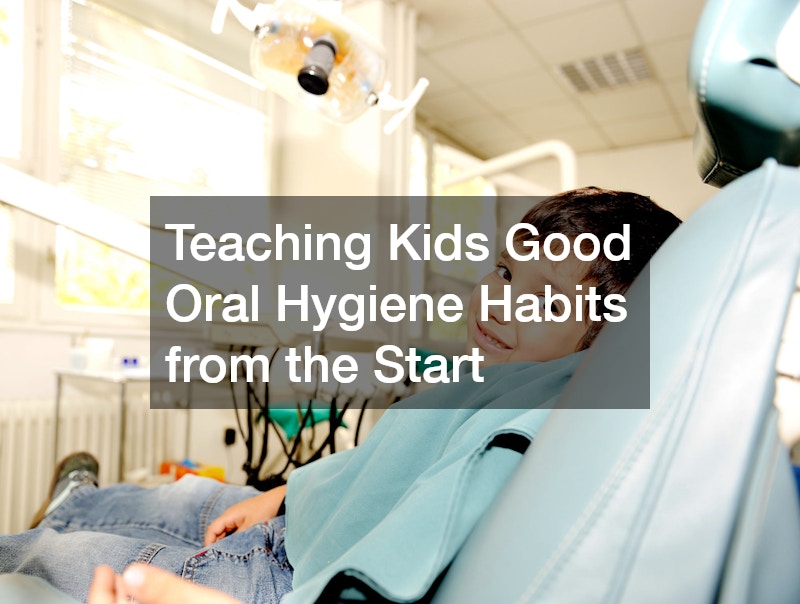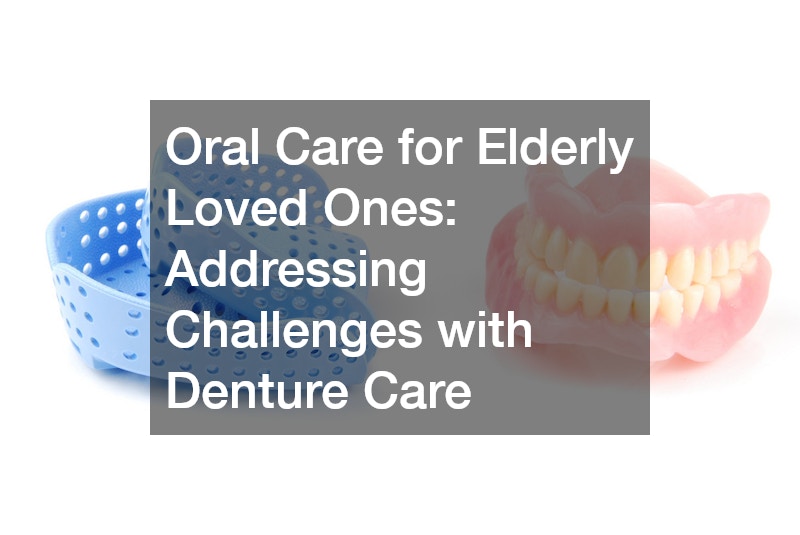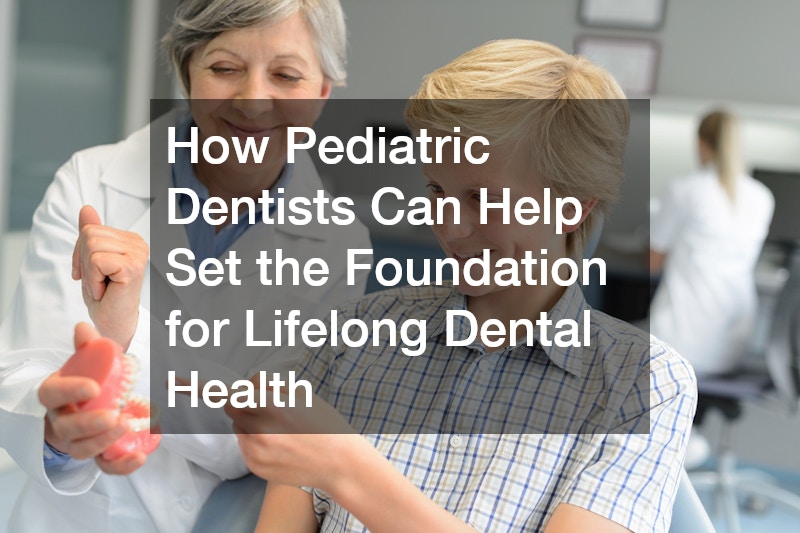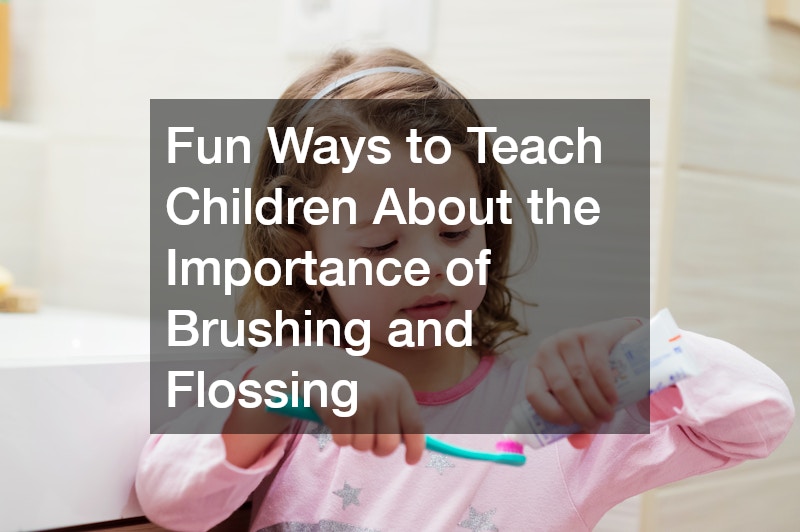
Top Tips for Effective Oral Hygiene Instruction: A Guide for Parents and Caregivers

Oral hygiene is an essential aspect of overall health, influencing various age groups differently. From the young to the elderly, oral hygiene instruction can significantly impact health outcomes, self-confidence, and quality of life. This article explores comprehensive strategies and challenges of maintaining oral hygiene from childhood to old age, providing insights across multiple facets of dental care.
As individuals transition through different life stages, their oral care needs evolve. Whether it involves teaching children good habits or aiding elderly loved ones with denture care, everyone requires tailored oral hygiene instruction. This article provides a roadmap for effective oral care across all stages of life, integrating various services like pediatric dentists, cosmetic dentist procedures, and urgent care interventions.
From primary teeth to dentures, maintaining excellent oral health requires a lifetime commitment. The article is organized into distinct sections to address each group’s needs and highlight the importance of regular oral hygiene instruction for all ages. Let’s delve into effective strategies for maintaining oral health and fostering a lifetime of dental wellness.
Teaching Kids Good Oral Hygiene Habits from the Start

Good oral hygiene instruction starts at a young age, forming the foundation for healthy dental habits. Parents and caregivers play crucial roles by modeling and teaching proper techniques for brushing and flossing. Establishing these habits early can help in preventing cavities and other dental issues.
Pediatric dentists are invaluable resources for families striving to instill lifelong oral health habits. They can offer personalized advice and preventative services ensuring that children’s dental development is on track. Regular visits to a pediatric dentist can also help alleviate dental anxiety and build trust in dental professionals.
Incorporating fun into oral care makes the process more engaging for children. Using colorful toothbrushes, flavored toothpaste, and educational games can motivate kids to maintain their routines. Through a mixture of oral hygiene instruction and creativity, children can better adhere to daily oral health practices.
Oral Care for Elderly Loved Ones: Addressing Challenges with Denture Care

As individuals age, oral care needs often become more complex, requiring specific oral hygiene instruction. Elderly individuals with dentures face unique challenges such as ensuring proper fit and avoiding infections. Denture care is critical and encompasses regular cleaning and maintenance to promote good oral health.
Routine denture repairs and assessments by dentists are essential to ensure comfort and functionality. Oral hygiene instruction for the elderly should include techniques to clean dentures effectively and instructions on overnight soaking and handling. This ensures that dentures remain hygienic and serve their purpose efficiently.
Elderly individuals may also require guidance on diet and lifestyle changes to complement their dental conditions. Nutritional advice can help offset the negative effects of missing teeth and dentures on digestion and overall health. By adhering to oral hygiene instruction, elderly individuals can significantly enhance their quality of life and maintain their confidence.
How Pediatric Dentists Can Help Set the Foundation for Lifelong Dental Health

Pediatric dentists specialize in the unique dental needs of children, offering tailored oral hygiene instruction that caters to their developmental stages. Their expertise in managing children’s dental health extends beyond routine dental cleanings, incorporating preventive care and education. By guiding both children and parents, pediatric dentists lay the groundwork for a lifetime of dental wellness.
Early visits to a pediatric dentist can identify potential oral health issues before they become significant problems. Regular check-ups with these specialists ensure the oral development of children proceeds optimally. Through these visits, children can also learn the importance of maintaining dental health from an early age, thus setting a precedent for their future.
Pediatric dental clinics often incorporate interactive and playful environments to ease dental anxiety in young patients. These environments encourage children to view oral care positively and reinforce oral hygiene instruction in a non-intimidating manner. Such practices are crucial in promoting positive attitudes towards dental care that persist as kids grow up.
The Impact of Early Water Conditioning on Children’s Teeth and Oral Care
Water conditioning plays a vital role in maintaining children’s oral health by influencing the quality and mineral content of water consumption. Fluoride-treated water can significantly contribute to the prevention of cavities. Early exposure to water conditioning can lay the groundwork for healthier teeth.
Parents should ensure their children are drinking water that has the right concentration of fluoride to support dental health. Pediatric dentists can provide oral hygiene instruction to parents about the importance of fluoride and other minerals in preventing tooth decay. Ensuring that the water quality is monitored can have long-lasting effects on a child’s oral health.
Aside from fluoride, other aspects of water quality, like pH balance, also play a significant role in oral care. Proper water conditioning can reduce acidity that potentially deteriorates dental enamel, offering an additional layer of protection. By combining good oral hygiene instruction with the benefits of conditioned water, children can maintain healthier teeth.
Fun Ways to Teach Children About the Importance of Brushing and Flossing

One of the most effective ways to teach children about oral care is to incorporate fun activities into the oral hygiene routine. Interactive games and songs can make brushing and flossing less of a chore and more of an enjoyable experience. This not only teaches correct techniques but also establishes positive lifelong habits.
Themed stories and cartoons focused on oral health can be used to reinforce the message. They often illustrate the consequences of poor oral care and emphasize the importance of regular brushing and flossing. By capitalizing on children’s love for stories, parents can enhance their child’s understanding of oral hygiene instruction.
Reward systems are another motivational tool for encouraging good oral hygiene habits. Parents can use star charts or small rewards for maintaining consistent brushing and flossing routines. This positive reinforcement encourages children to take ownership of their oral health, making them more likely to continue these habits as they grow.
Creating an Oral Hygiene Routine That Works for Busy Families
For busy families, maintaining a consistent oral hygiene routine can be challenging amidst hectic schedules. The key is integrating oral care into daily activities with strategic oral hygiene instruction. By allocating specific times for brushing and flossing, families can ensure consistent and effective oral care.
Utilizing modern tools like electric toothbrushes and water flossers can make the routine more efficient and less time-consuming. These devices are often quicker and more thorough, fitting seamlessly into busy lives. Investing in these technologies can simplify the routine and ensure heightened oral health for everyone in the family.
To further streamline oral care in a busy household, families may consider scheduling regular dental cleanings at affordable dental clinics. Consistent check-ups offer both preventive care and professional cleanings that contribute to long-term oral health. Dentists at these clinics can provide oral hygiene instruction to simplify and enhance home care routines.
The Importance of Regular Dental Cleanings for Kids: How Often Should They Visit?
Regular dental cleanings are essential for children to maintain optimal oral health and to prevent future dental issues. Most pediatric dentists recommend scheduling cleanings and exams every six months. This bi-annual schedule allows dentists to catch potential issues early and provide effective oral hygiene instruction.
Beyond just cleaning, these visits are pivotal for monitoring a child’s dental development. They provide an opportunity to address concerns such as tooth alignment and oral hygiene techniques. Establishing this routine helps children build trust with dental professionals, setting a strong foundation for lifelong dental care.
For children with specific dental conditions, more frequent dental cleanings may be necessary. A customized dental plan based on the pediatric dentist’s evaluation ensures comprehensive care. Regular consultations also reinforce oral hygiene instruction, keeping families informed of the best practices to follow at home.
Why Seniors Need Specialized Oral Hygiene Instruction to Prevent Gum Disease
Seniors are at a higher risk for oral conditions such as periodontal or gum diseases, necessitating tailored oral hygiene instruction. These conditions can be exacerbated by existing health issues or the natural aging process. Specialized care and instruction help in managing these risks effectively.
Elderly individuals often require dental routines that account for specific health considerations such as medication side effects. Dentists play a crucial role in providing care regimens that mitigate the impact of these factors. By receiving personalized oral hygiene instruction, seniors can maintain their gum health and prevent disease progression.
Routine check-ups with dentists facilitate early detection and treatment of gum disease. Dentists can impart specialized techniques and tools that cater to older patients’ needs. This proactive approach helps decrease the incidence of severe gum disease, promoting stronger dental health in later years.
How Medicaid Dental Implants Can Benefit Seniors with Missing Teeth
For seniors with missing teeth, Medicaid dental implants can provide significant benefits, including improved aesthetics and functionality. These implants serve as sturdy replacements, allowing seniors to enjoy their favorite foods and speak more clearly. Medicaid dental implants offer financial relief, helping reduce the costs associated with these procedures.
Many seniors may avoid seeking dental work due to affordability concerns. Government programs like Medicaid help resolve this by covering costs, thereby making essential treatments accessible. Such programs ensure that more seniors can benefit from advanced dental solutions and receive proper oral hygiene instruction alongside.
With implants, seniors not only enjoy physical improvements but also a boost in their confidence levels. The increased stability and comfort lead to better quality of life and more engagement in social activities. Medicaid dental implants, combined with proper oral hygiene instruction, play a vital role in enhancing the lives of elderly individuals with dental needs.
Helping Seniors with Cognitive Decline Maintain Oral Hygiene
Cognitive decline in seniors poses additional challenges in maintaining oral hygiene, as these individuals may forget steps of their routine. Tailored oral hygiene instruction can offer simplified methods and tools for easier self-care. Caregivers and family members should monitor these activities to ensure effective practices.
Functional adaptations, such as user-friendly toothbrush handles and timers, can aid in simplifying tasks for seniors with cognitive impairments. Regular caregiver training on providing oral hygiene instruction ensures consistent care standards. This support structure enhances daily oral care activities, promoting overall well-being.
Routine dental visits become even more critical for seniors experiencing cognitive decline. These appointments help track any oral health issues and adapt care plans as needed. Dentists can offer additional resources and techniques tailored to the unique challenges of cognitive decline, supporting seniors in maintaining their oral hygiene.
The Role of Cosmetic Dentists in Enhancing Elderly Smiles and Confidence
Cosmetic dentists specialize in procedures that enhance the appearance of elderly smiles, boosting their self-esteem and social interactions. Treatments such as teeth whitening, veneers, and implants offer both aesthetic and functional benefits. By receiving tailored oral hygiene instruction, seniors can maintain these improvements.
Innovative cosmetic procedures can address age-related dental issues such as discoloration and wear. For many seniors, these enhancements lead to greater satisfaction with their appearance, encouraging them to participate more actively in social engagements. Through collaboration with a skilled cosmetic dentist and good oral hygiene instruction, seniors can achieve remarkable outcomes.
Cosmetic dental care not only revitalizes smiles but also enriches lives by restoring confidence. Seniors often transition into a period where personal appearance plays a critical role in their social interactions. Cosmetic dentists, through careful evaluation and individualized treatment plans, help seniors attain the desired aesthetic results.
How Regular Dental Check-ups and Cleanings Can Improve Seniors’ Overall Health
Regular dental check-ups and cleanings serve an essential role in safeguarding seniors’ oral and overall health. Periodic visits allow for early detection of dental conditions that could affect health adversely. Dentists provide essential oral hygiene instruction that ensures seniors maintain their oral health at home.
Oral hygiene has interconnections with other health metrics like cardiovascular and diabetes management. Addressing dental issues promptly reduces risks of broader health complications. Seniors can greatly benefit from dental advice and oral hygiene instruction that highlights the importance of routine professional cleanings.
Dental professionals guide seniors toward comprehensive care that aligns with their specific health needs. By following a structured approach, seniors can better manage oral conditions affecting general well-being. Routine dental services at affordable dental clinics help preserve both seniors’ dental and overall health, contributing positively to their quality of life.
How Cosmetic Dentistry and Plastic Surgery Procedures Can Boost Confidence in Seniors
As we age, both our physical appearance and our smile can change in ways that affect how we feel about ourselves. For many seniors, cosmetic dentistry and plastic surgery procedures offer opportunities to enhance their appearance and boost self-confidence. These procedures, when done with careful consideration, can help seniors regain a youthful, refreshed look and feel more comfortable in their own skin.
Cosmetic dentistry is a great option for seniors looking to improve their smiles. Procedures like teeth whitening, veneers, and crowns can restore the brightness and uniformity of their teeth, which may have dulled or become damaged over the years. This can help eliminate the feeling of embarrassment that can sometimes accompany aging teeth. Restoring a smile can go a long way in improving a senior’s confidence and enhancing their overall appearance.
Plastic surgery procedures, such as facelifts or eyelid surgery, are becoming increasingly popular among seniors seeking to reverse the signs of aging. These procedures can reduce the appearance of sagging skin, wrinkles, and drooping eyelids, providing a rejuvenated, more youthful appearance. For seniors who feel self-conscious about the aging process, these procedures can restore a sense of vitality and improve their self-esteem.
For some seniors, combining cosmetic dentistry with facial plastic surgery can provide a comprehensive rejuvenation that enhances both the appearance of their smile and facial features. The combination of these treatments can give them a more harmonious, youthful look that boosts confidence and helps them feel more like themselves.
The importance of oral hygiene instruction spans all ages, highlighting the need for customized care plans and consistent preventive measures. From pediatric dentists guiding young ones to cosmetic dentists enhancing senior smiles, an individual’s dental journey requires ongoing attention. Urgent care facilities also play a role in addressing immediate concerns efficiently.
Addressing the unique challenges faced at different life stages empowers everyone to maintain optimal oral health. Coordination between affordable dental clinics and families ensures the accessibility of essential services like regular dental cleanings and Medicaid dental implants. Proper water conditioning and lifestyle adjustments further enhance the effectiveness of oral care regimes.
This comprehensive overview underscores the critical role that oral health plays in overall wellbeing. By adopting proactive approaches and adhering to specialized oral hygiene instruction, individuals across all age groups can enjoy improved dental health and quality of life.

